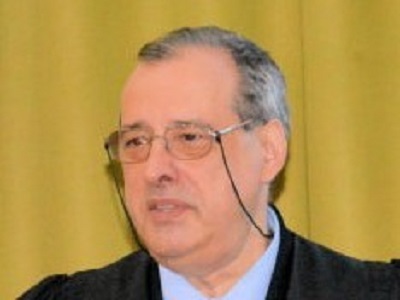
Prof Valentin Plesu
Centre for Technology Transfer in the Process Industries, University Politehnica of Bucharest, Romania
Energy Saving in Separation Processes for Bioresources Valorization
Separation processes for bioresources valorization have some specific features:
– Some valuable compounds are in high dilution (as the products from fermentation)
– Valuable compounds are very sensitive at atmospheric conditions (air sensitive, normal temperature sensitive as lycopene, carotenoids, etc.)
– Valuable compounds have low volatility and thermal sensitivity, consequently need quite low temperatures for separation processes (glycerides, unsaturated fatty acids, unsaturated fatty acids methyl/ethyl esters, etc.)
As a consequence, this keynote lecture addresses special techniques as very high vacuum distillation or supercritical fluids extraction, underlying energy saving aspects related to each technique. In our centre two specialised laboratories are created: Laboratory for Innovative Products and Processes (here there are two laboratory pilot plants: very high vacuum distillation plant DSL-5 and respectively molecular distillation plant KDL-5 both from UIC) and Laboratory for Engineering of Supercritical Fluids Extraction Processes (including a solid SCF extraction unit and a column for fluid – SCF extraction).High vacuum and molecular distillation are techniques aimed to protect thermos-labile materials. However as the separation factors are not too high, the separation scheme involves repetition of these processes. This presentation evaluates the energy saving effect for different separation schemes for unsaturated fatty acids methyl esters. Supercritical fluid extraction is a separation technique aimed to separate active and sensitive compounds from both solid matrixes and fluids. As pressure is very high (150-400 bar) and reasonable temperatures (50-70 °C) the energy saving is an important issue to operate properly the extraction. After separation of CO2 the extracts are quite pure. The laboratory pilot plant existing in the Laboratory for Engineering of Supercritical Fluids Extraction Processes is designed for SCCO2 flowrates until 25 kg/h and pressure 550 bar. In this lecture an illustration for energy aspects related to extraction of carotenoids from some bioresources (tomatoes peels and marigold flowers) is presented.
CV: Professor Valentin PLESU is the director of the Centre for Technology Transfer in the Process Industries, research and consulting unit with more than 20 years activity in University POLITEHNICA of Bucharest. He has more than 40 years of academic in the Department of Chemical and Biochemical Engineering – Faculty of Applied Chemistry and Material Science, University POLITEHICA of Bucharest. He developed, as principal investigator, over 200 research and consulting projects funded by companies and by the budget of national and international funding bodies. The main research topics addressed during the years are: the separation processes, analysis of process plants, improvement of oil processing plants, modeling and simulation of bioresources separation (high-vacuum separation and supercritical fluid extraction), modeling and simulation of chemical processes. He has authored or co-authored more than 50 articles in international journals with high impact. He has also authored or co-authored more than 190 papers in various symposia and conferences, in some cases by direct invitation. He is funding member of Romanian Society of Chemical Engineering (RSCE), and representative of RSCE in the Computer Aided Process Engineering Working Party (CAPE-WP) of European Federation of Chemical Engineers. He received in 2007 ”Emilian A. Bratu” award from Romanian Chemical Society.